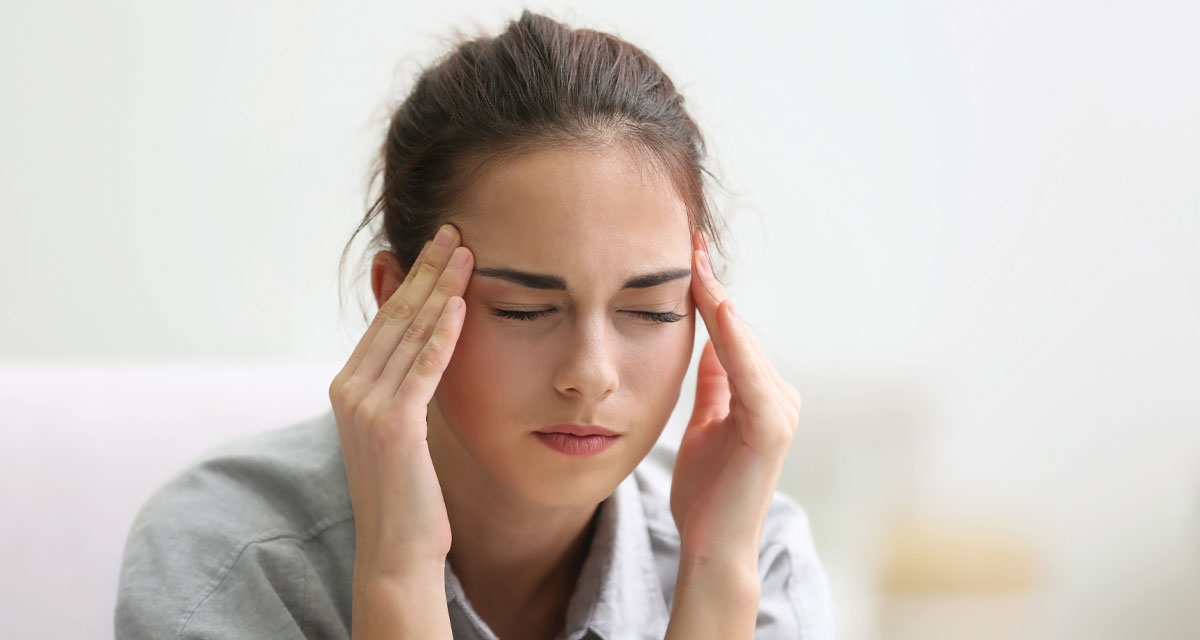There isn’t one adult who hasn’t experienced some form of debilitating headache. Fingers can find the spot that may feel like an aching, throbbing pain. Headaches are one of the most common medical complaints, often without our understanding the cause. Lifestyle choices, whether it’s exercise, diet, or taking time to relax, can immediately impact daily functioning and quality of life. There are checklists to discover whether you fall into the category of infrequent or chronic conditions. Learning the root cause of tension and migraine headaches can lead to personal changes and healthy living.
More than just increased stress levels
Affecting both sides of the head with mild to acute pain, the tension, or stress, headache occurs due to psychological, neurobiological, and physical factors. As the parts of the body are interconnected, the ear, for instance, can impact the shoulder down to the fingertips; therefore, pain may begin as muscular tension spanning the distance from the jaw to the scalp or from the neck to the shoulders. Researchers continue to ask, “Why?” but the answer is complicated. They have found that due to genetics, environmental factors, mood disorders, or existing medical conditions may trigger various responses. Beyond stress, anxiety, sleep imbalance, fatigue, and hormonal changes, scientists attribute body posture, eye strain, teeth-grinding, certain medications, and skipping meals as causes. Accepting recurring pain may be tolerated temporarily, yet, it’s vital to discover the personalized answer to “Why me?”
Red flags
Documentation and remembering situations that prompted an onset of a tension headache or migraine are vital to a health care provider.
Think about the following:
- At what age did your headaches begin?
- Did they occur during or after pregnancy?
- Are they present during menstruation?
- Has one ever arrived from exertion, such as coughing or sneezing?
- Can you describe the situation of the worst headache yet experienced?
Dangerous headaches, deemed “acute,” require professional assistance. But remember, you do not have to suffer; there is always help.
Lifestyle changes help dramatically
Determining the mechanism of a tension headache requires some investigation; therefore, consider the following questions.
- How do you manage stress? Do you take time to slow the heart rate and practice breathing? Exercise emphasizing calming the nervous system, such as Yoga, Tai chi, neck kinesiotherapy, posture corrective training, and lifting weights all help eliminate tension headaches.
- Do you sleep through the night? Headache symptoms increase in individuals impacted by sleep disturbances; yet, up to 65% of full recovery is possible.
- Do particular foods trigger a headache? Consider keeping a diary to learn if eating chocolate, cheese, nuts, beans, or consuming red wine daily precipitate cranial pain. Even dehydration, caffeine, or withdrawal can play a role. By understanding food intake, you can understand how processed foods, carbohydrates, and even meals containing flour (i.e., gluten) influence the response to a headache.
- 7What resolves the pain? Our body tells us so much information based on how we feel. Fatigue relates to needing more Rosemary or exercise in our diet. When headaches and illness arise, we slow down; sometimes we turn off the lights and sleep. Listening to the body and trying solutions, such as drinking chamomile and lemon balm tea or taking a warm shower, may help temporarily. Life does not always allow us to accommodate our minds to shutting down and waiting until wellness arrives.
Herbal Support
Plant-based medicines are as personalized as the condition requiring them. For instance, not everyone becomes excited over the scent of lavender or the taste of chamomile; therefore, trying poultices from herbal compresses or drinking various teas may warrant experimentation. Look for organic herbal teas that offer medicinal therapy. They may include oat milky tops, mugwort, skullcap, passionflower, wood betony, meadowsweet, and linden—all herbs that are proven to ward off or ease the symptoms of a tension headache. Essential oils, such as lavender, rosemary, or eucalyptus and peppermint, applied topically, can result in positive results. Personal research is important to find the right medicinal value for your needs.
Bitters
- “Bitters” are often used as an additive for a mixed cocktail; these are bitter-tasting herbs, such as white willow bark, feverfew leaf, and butterbur rhizome, which also support the liver, digestive functioning, and waste removal. In thinking about stress, the liver is the key organ that maintains blood sugar levels and triggers headaches.
By remaining vigilant to the triggers that cause early symptoms, you can make a lifestyle change to resume control over your well-being. Write down a few questions to ask your doctor to find solutions, rather than suffering through periodic pain.























